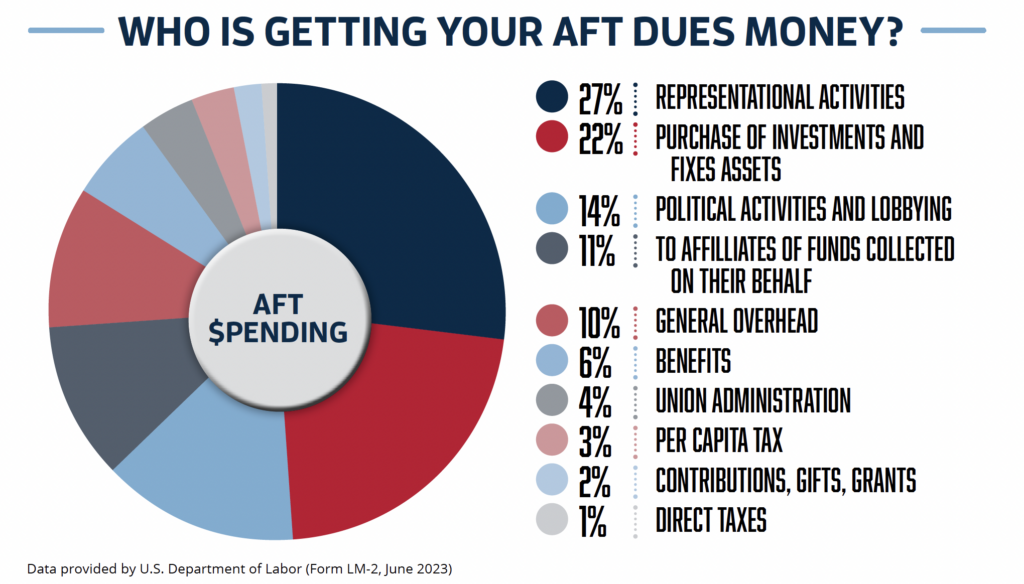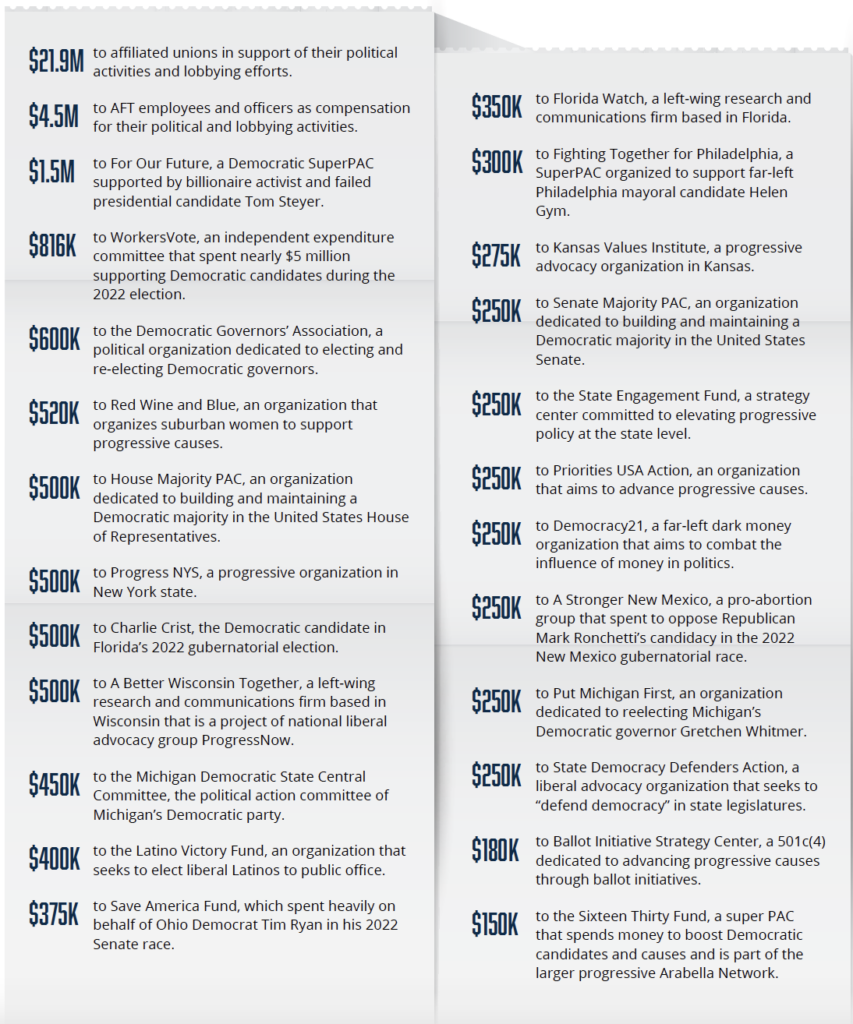A LOOK AT AFT SPENDING IN THE 2022-2023 SCHOOL YEAR

The American Federation of Teachers (AFT) represents over 1.7 million teachers throughout the country. Under the leadership of President Randi Weingarten, AFT has taken on an increasingly prominent role in political and cultural debates throughout the country.
As a labor union that represents both public and private sector employees, AFT files a Form LM-2 financial disclosure with the United States Department of Labor. An examination of the union’s finances can help explain its political priorities.
The latest financial disclosure, covering July 1, 2022, to June 30, 2023, reveals that only 27.4 percent of AFT’s spending went towards representational activities, down from 34 percent over the prior reporting period. ‘Representational activities’ is the category most closely related to labor representation, the primary job of a labor union. Approximately 20% of expenses went towards running the union, covering union employee salaries and benefits, general overhead, and administration costs. Union employee retirement, vacation, and severance obligations make up 48 percent of the union’s total liabilities.
Though spending on representation decreased, AFT spent $46.9 million of members’ dues on politics last year, an increase from the $35.7 million spent during the prior reporting period. Most of this spending went towards left-wing political causes. The union spent an additional $7.2 million on “Contributions, Gifts, and Grants,” with much of this money going to political organizations. In total, political spending accounted for 13.8 percent of AFT’s spending in 2022-2023.
AFT’s revenue reached $283 million during 2022–23, an increase of $17.9 million when compared to 2021–22. The union collected $189 million of this revenue from membership dues, down from the $211 million it collected last year. Though AFT collected less in dues, it saw an increase in total membership, gaining approximately 30,000 new members. Most of the new members were retiree members that do not pay dues and part-time members that pay a reduced rate.
AFT spent $339.7 million in 2022–23, almost $90 million more than it spent in 2021–22. The purchase of investments and fixed assets was a major spending category, accounting for 21.5 percent of total expenditures. As such, the value of AFT’s investments increased by $26 million during the reporting period. Transfers to other unions made up 14 percent of all expenditures, with AFT paying $9.7 million in per capita tax, and transmitting $38 million to its affiliates after collecting that money on their behalf.
Let’s Get Connected
We offer a free membership program, networking opportunities, and professional development scholarships to support qualifying public employees. Sign up today to receive updates from our team.
Union employee salaries make up a significant part of union administration costs. AFT President Randi Weingarten made $498,781 during the reporting period, more than 8.5 times the average teacher’s salary of $57,543. Weingarten’s salary has increased by over $45,000 since 2020. Other top earners include Secretary-Treasurer Frederick Ingram ($415,988) and Executive Vice President Evelyn DeJesus ($316,976).
Overall, AFT is in a solid financial position. The union holds over $139 million in assets and $93 million in liabilities. Despite the overall solid financial position, AFT’s net assets decreased by $14.4 million during this period. The union also spent $56.5 million more than it took in over the latest reporting period.

AFT dues money pays for politics.
According to federal law, member dues can be used for a variety of political activities, such as issue advocacy, get-out-the-vote drives, election mailers, lobbying, and public marketing campaigns. The Janus v. AFSCME Supreme Court decision relieves nonmembers from the obligation to pay any dues or fees to the union as a condition of public employment. However, for teachers who remain AFT members, Janus changes nothing about how union dues are spent: they are still routinely used for political purposes. During the latest reporting period, AFT gave:
